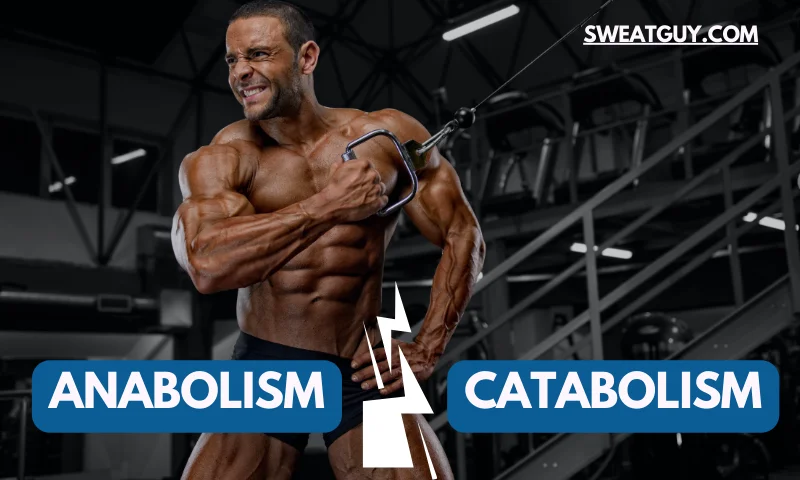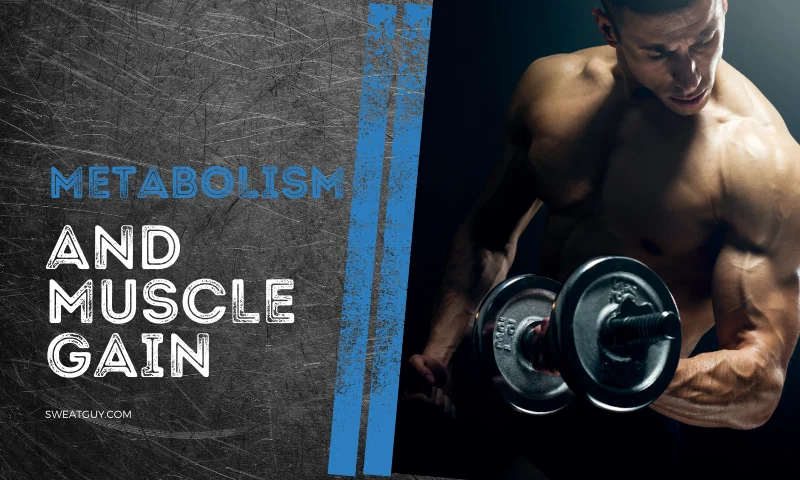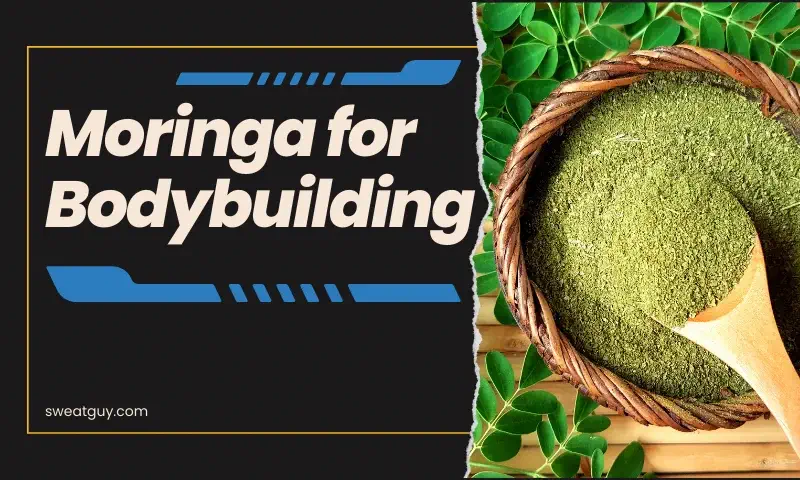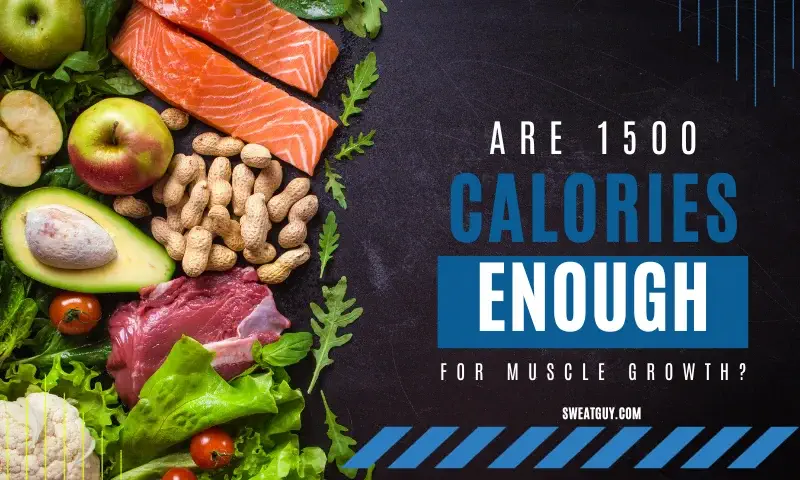Fitness enthusiasts who aim to build muscles often struggle between natural and artificial supplements to accelerate the process.
Ashwagandha and creatine are the two scientifically backed powerhouse supplements for muscle building.
However, while ashwagandha is naturally available, bodybuilders need to take creatine supplements.
While both deliver high potential benefits for muscle growth, which reigns supreme?
Here, in creatine vs ashwagandha for muscle growth, we’ll analyze their strengths, weaknesses, and potential to fuel your fitness journey.
This detailed exploration delves into the mechanisms of action, effects on testosterone levels, cortisol regulation, performance enhancement, scientific evidence, and the feasibility of taking Ashwagandha and Creatine together.
Key Insights:
- Bodybuilders use multiple supplements to boost their muscle-building process and creatine and ashwagandha are the most common among them.
- Though creatine is naturally produced by the body, its supplementation is proven to increase muscle strength and growth.
- Ashwagandha is an herb that has been part of traditional medicines and is also popular among fitness enthusiasts.
- Ashwagandha can lower stress and also help boost testosterone levels both of which are crucial for muscle growth
Creatine vs Ashwagandha For Muscle Growth
Creatine is an amino acid naturally produced by the body or is consumed through foods.
Notably, creatine is stored in the muscles for the body to use as fuel during high-intensity movements.
The fact that creatine helps with improving ATP, provides energy to the cells and also promotes muscle recovery.
While creatine is naturally produced by the body, bodybuilders need to take creatine supplements to have a major impact on their muscle growth.
Ashwagandha, on the other hand, is a traditional herb used for medicinal and bodybuilding purposes.
Also known as Withania Somnifera, ashwagandha is a popular adaptogen with stress-reducing abilities and muscle-building benefits.
Creatine and Ashwagandha, have gained prominence for their potential benefits in muscle building.
However, when it comes to choosing one, it is crucial to have a detailed comparison.
How Does Ashwagandha Help With Muscle Growth?
Ashwagandha utilizes several mechanisms that may contribute to muscle building. Here’s how ashwagandha supports muscle growth and interactions within the body.
#1. Improves Exercise Performance and Muscle Strength
While the primary focus of Ashwagandha supplementation in the context of muscle growth is its effects on stress and hormone levels, it may also enhance exercise performance and endurance.
It does so by improving oxygen utilization and increasing energy production. Ashwagandha supplementation also improves muscle strength as per the studies report.
Ashwagandha may help individuals push past training plateaus and reach their muscle-building goals more effectively.
#2. It Has Anti-inflammatory and Antioxidant Properties
Ashwagandha supplementation can reduce markers of inflammation and oxidative stress, thereby facilitating faster recovery and repair of damaged muscle tissue.
Mitigating inflammation and oxidative damage through ashwagandha may enhance the body’s ability to adapt to exercise-induced stressors and promote muscle hypertrophy.
Additionally, its antioxidant properties may protect against free radical damage, which can impair muscle function and contribute to age-related muscle loss over time.
#3. It Regulates Hormonal Balance
Testosterone is a key hormone involved in muscle protein synthesis, anabolic processes, and overall muscle growth.
Ashwagandha and testosterone are positively co-related. Several studies have demonstrated that Ashwagandha supplementation can increase serum testosterone levels.
By enhancing testosterone levels, Ashwagandha may promote muscle hypertrophy, strength gains, and overall athletic performance.
#4. Through Modulation of Stress Response
Chronic stress can have detrimental effects on muscle growth by increasing cortisol levels. Ashwagandha supplementation has been shown to reduce cortisol levels.
The herb may help prevent excessive muscle breakdown during periods of intense training or psychological stress.
This allows for more effective muscle repair and growth in response to exercise-induced damage. As a result, it ultimately leads to greater gains in strength and size over time.
How Does Creatine Help With Muscle Growth?
The efficacy of creatine in enhancing muscle building and athletic performance has been extensively studied.
This makes it a staple supplement for athletes, bodybuilders, and fitness enthusiasts alike.
Here is an insight into how creatine helps in muscle-building and its mechanisms of action and physiological effects on the body.
#1. Increases ATP
Within muscle cells, creatine is converted into phosphocreatine. During short-duration, high-intensity activities such as weightlifting or sprinting, ATP stores become rapidly depleted.
Phosphocreatine regenerates ATP and sustains energy production. This process delays the onset of fatigue and allows individuals to perform more repetitions or lift heavier weights.
This ultimately leads to greater mechanical stress on muscles.
#2. Accelerated Muscle Recovery
By replenishing ATP stores and maintaining cellular energy levels, creatine supplementation can reduce muscle damage and inflammation, allowing for faster recovery between training sessions.
This accelerated recovery enables individuals to train more frequently and with higher volumes, further promoting muscle growth over time.
#3. Enhanced Muscle Strength
Creatine supplementation enhances strength and power output during resistance training exercises.
Studies have consistently demonstrated that individuals supplementing with creatine experience greater improvements in strength compared to those using a placebo.
The ability to lift heavier weights or perform more reps during workouts leads to greater muscle activation and stimulation, which in turn promotes muscle hypertrophy.
#4. Increased Muscle Cell Hydration
Creatine supplementation has been associated with intracellular water retention in muscle cells, leading to a phenomenon known as “cell volumization” or “cell swelling.”
This increase in muscle cell volume creates a more favorable environment for muscle protein synthesis.
Additionally, cell swelling may trigger anabolic signaling pathways within muscle cells, further enhancing muscle hypertrophy.
So, who do you think creatine vs ashwagandha is better for muscle growth?
Both Ashwagandha and Creatine offer potential benefits for muscle growth and performance enhancement, albeit through different mechanisms.
Moving on, consuming creatine and ashwagandha also comes with certain side effects that need to be addressed before you pick one.
Creatine vs Ashwagandha For Muscle Growth: Side Effects
Creatine is generally safe when consumed at the recommended value. As per the reports of
As per the reports of The Journal of The International Society Of Sports Nutrition, Short and long-term supplementation of creatine which is up to 30g/day for 5 years is safe and well-tolerated in healthy individuals.
However, ensuring habitual low dietary creatine ingestion which is 3 g/day throughout the lifespan can also provide significant health benefits.
But it is also true that exceeding the dosage can lead to side effects that can hamper the muscle growth process.
Some of the side effects of creatine supplementation are:
#1. Water Retention: This is primarily due to the intracellular water retention in muscle cells.
#2. Gastrointestinal Distress: Some individuals may experience gastrointestinal discomfort, such as nausea, diarrhea, or cramping, when initiating Creatine supplementation.
#3. Muscle Cramps: In rare cases, Creatine supplementation may lead to muscle cramps, particularly during high-intensity exercise.
Talking about ashwagandha, since it has been part of traditional medicines, its usage is safe for most individuals.
For muscle growth and strength, the recommended dosage of ashwagandha is 750 – 1250 mg per day.
Nonetheless, since it is an herbal supplement, it is also associated with certain side effects.
Some of the side effects of ashwagandha are:
#1. Gastrointestinal Upset: Some individuals may experience mild gastrointestinal upset, such as stomach discomfort or diarrhea, particularly when starting supplementation or taking higher doses.
#2. Drowsiness: Ashwagandha may cause drowsiness or fatigue in some individuals, especially when taken in larger doses or before bedtime.
Both creatine and Ashwagandha offer potential benefits for muscle building, but they may differ in their side effects and dosage recommendations.
Creatine may cause water retention, gastrointestinal distress, or muscle cramps, particularly during the loading phase.
Ashwagandha, on the other hand, may lead to gastrointestinal upset, drowsiness, or hypotension in some individuals.
Following appropriate dosage guidelines and monitoring for any adverse reactions is crucial for minimizing the risks associated.
Now, since both supplements have their own benefits and side effects, can one take ashwagandha and creatine together?
There is no proof of the effect of taking ashwagandha and creatine together. It is, therefore, not recommended to take these together without consulting the healthcare professionals.
Ashwagandha vs Creatine – Final Verdict
Both ashwagandha and creatine are beneficial in boosting the muscle growth process. However, when it comes to muscle building, each has its own unique properties.
Ashwagandha, with its adaptogenic properties, may help manage stress and regulate hormone levels, potentially supporting muscle growth indirectly.
On the other hand, Creatine can increase phosphocreatine levels in muscles, enhancing energy production and facilitating greater strength and power output during workouts.
Adding to it, while Ashwagandha offers benefits for overall well-being and stress management, creatine stands out as a more direct and effective supplement for maximizing muscle growth and strength gains.
Ultimately, the choice between Ashwagandha and Creatine depends on individual goals, preferences, and considerations.









